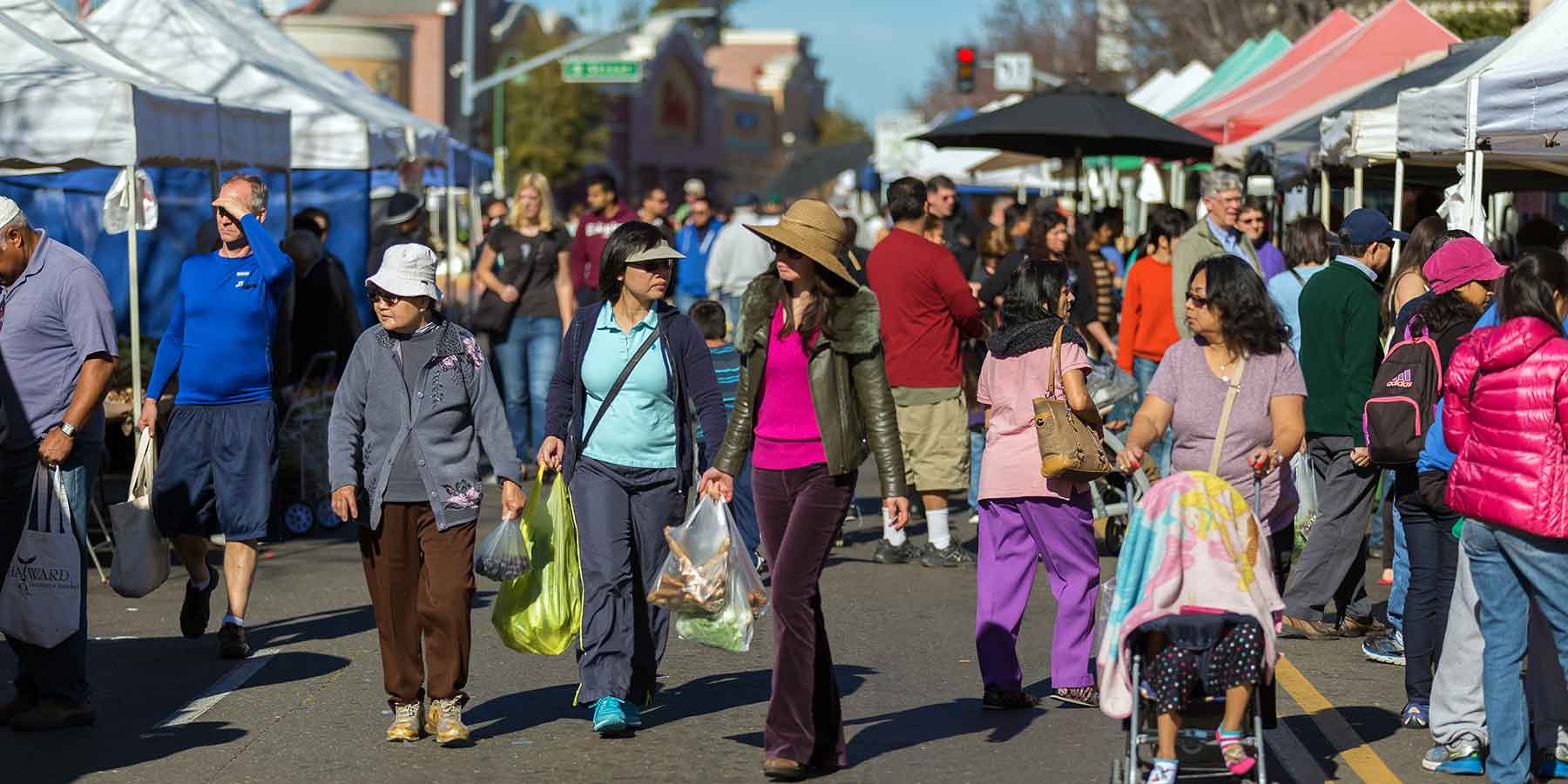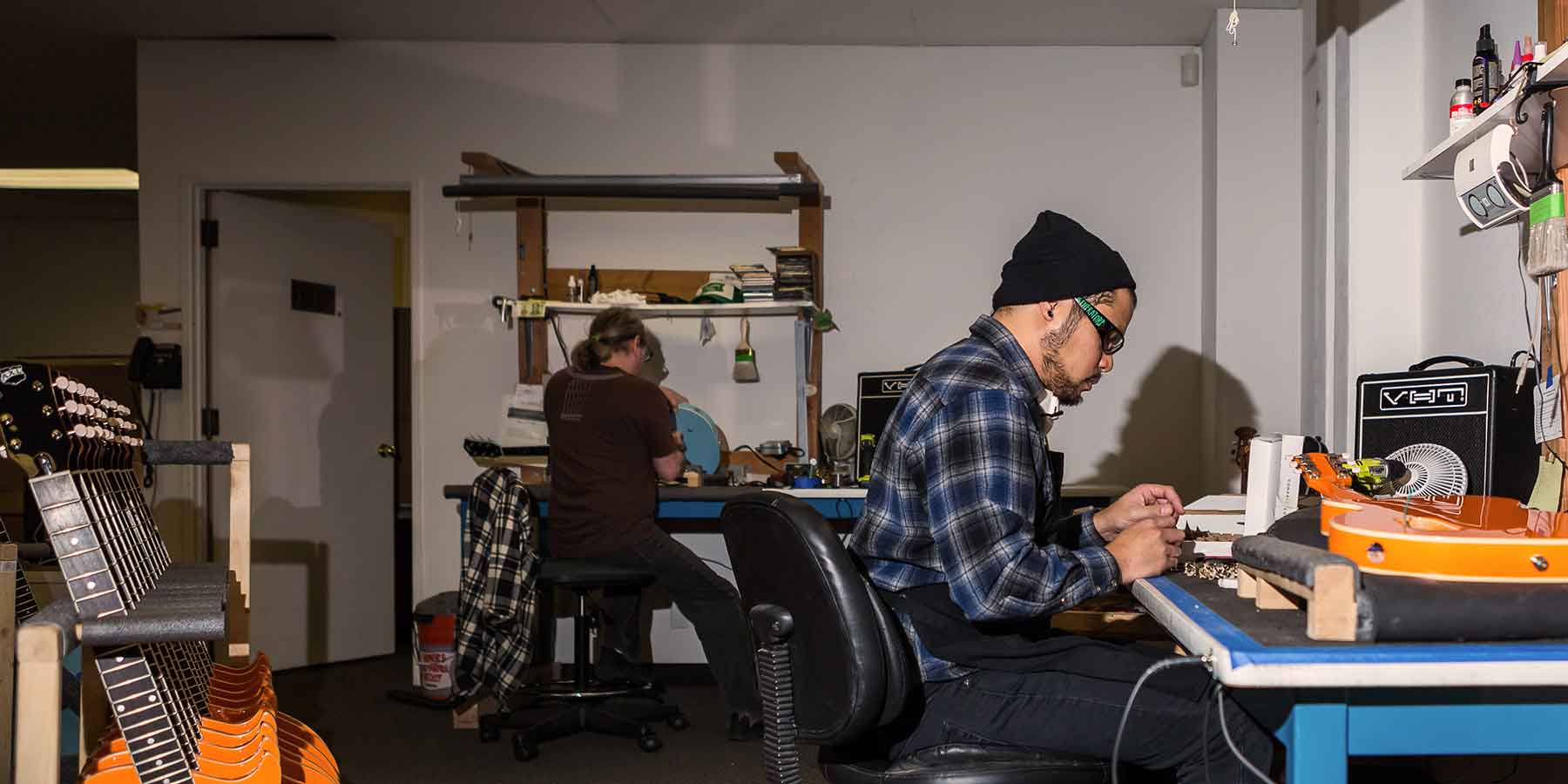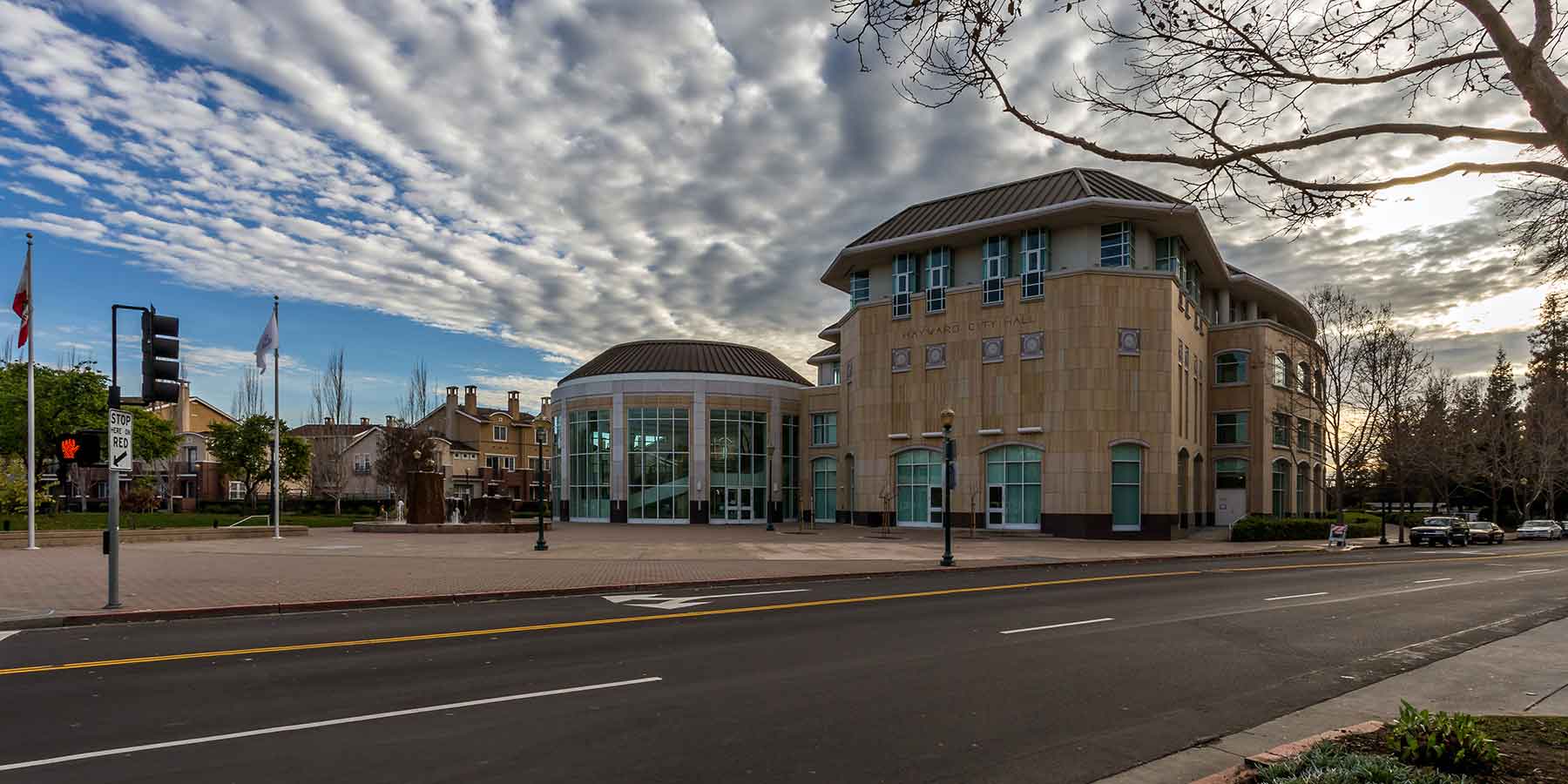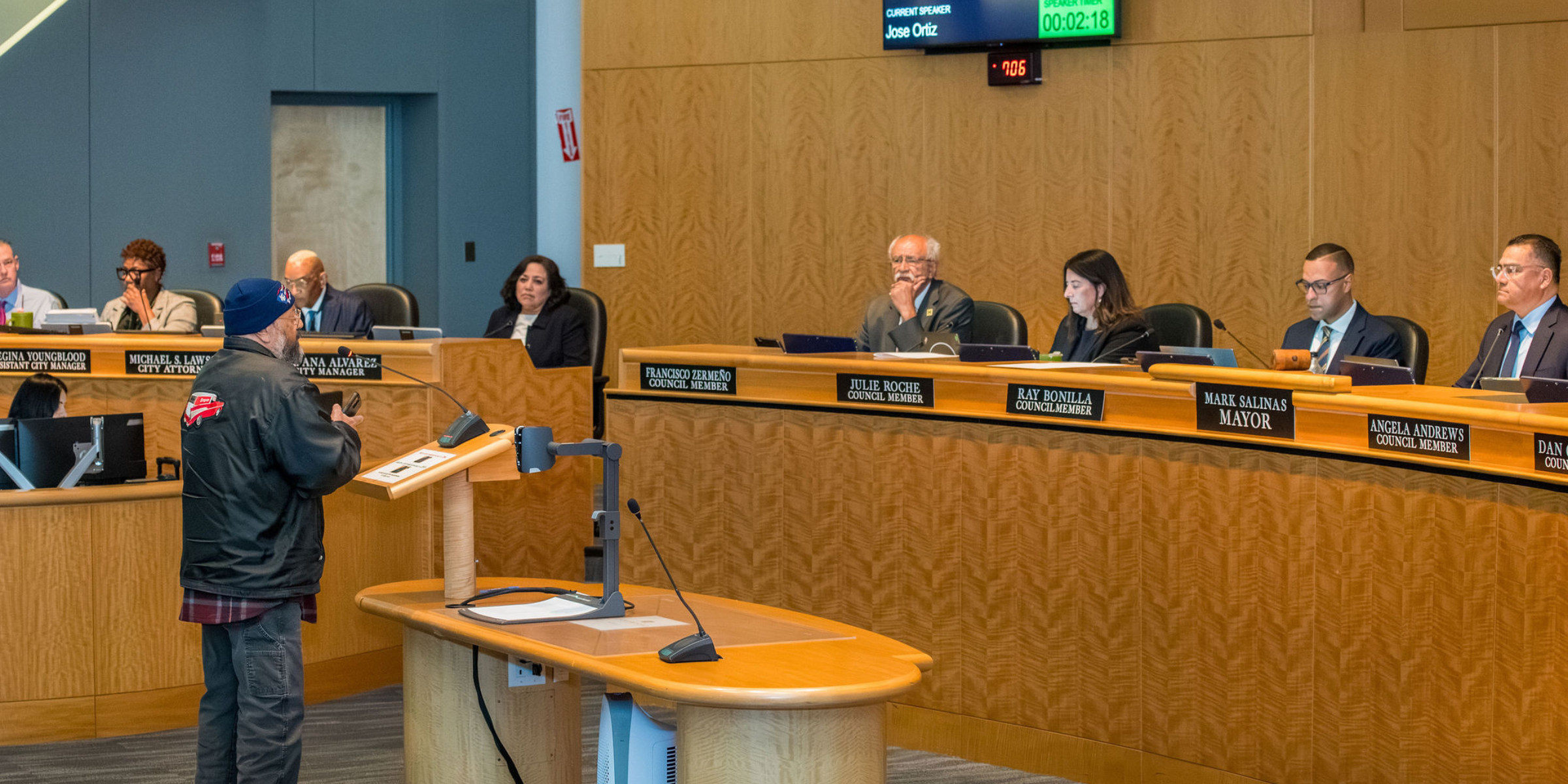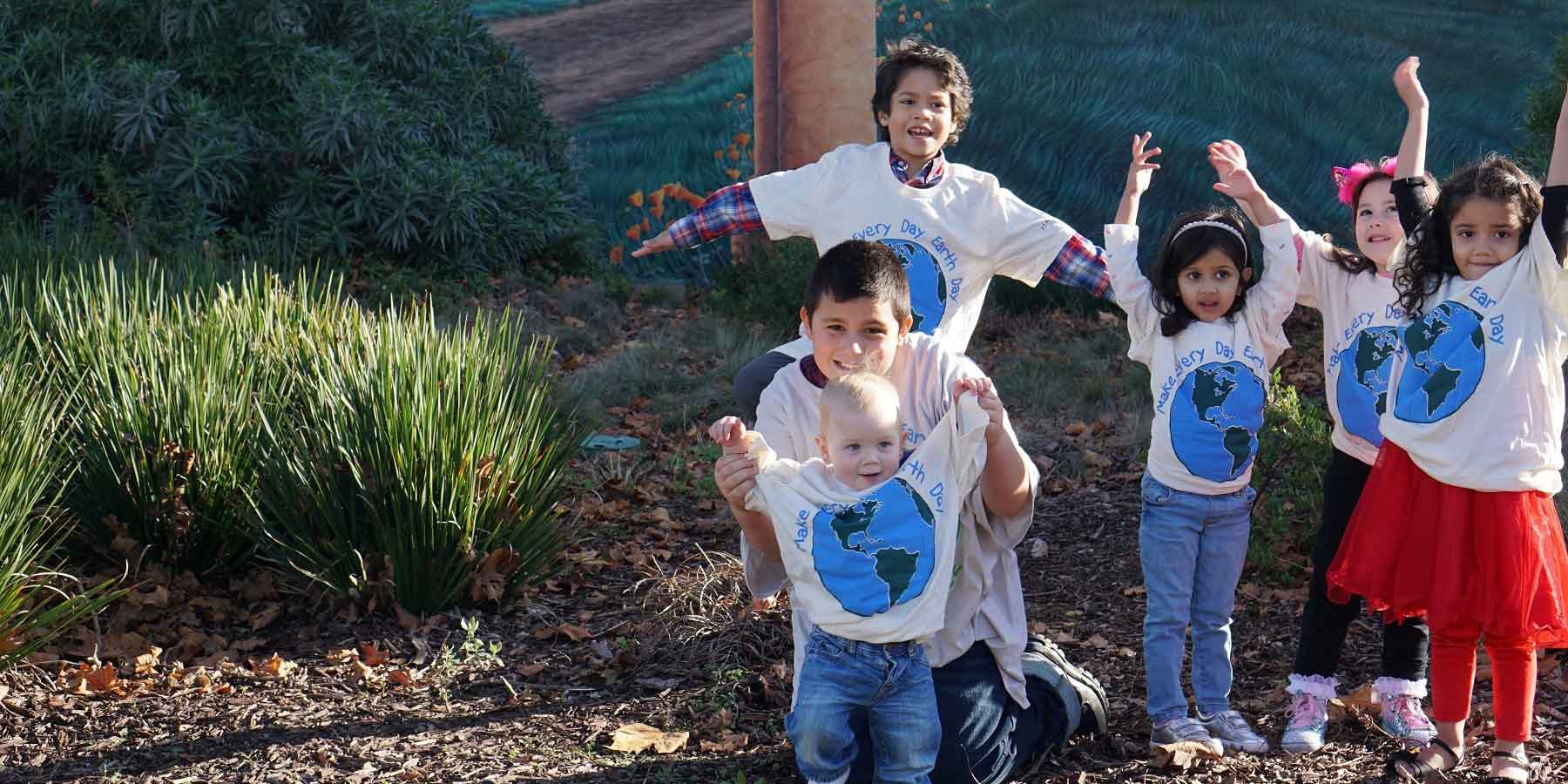Education and Lifelong Learning Element
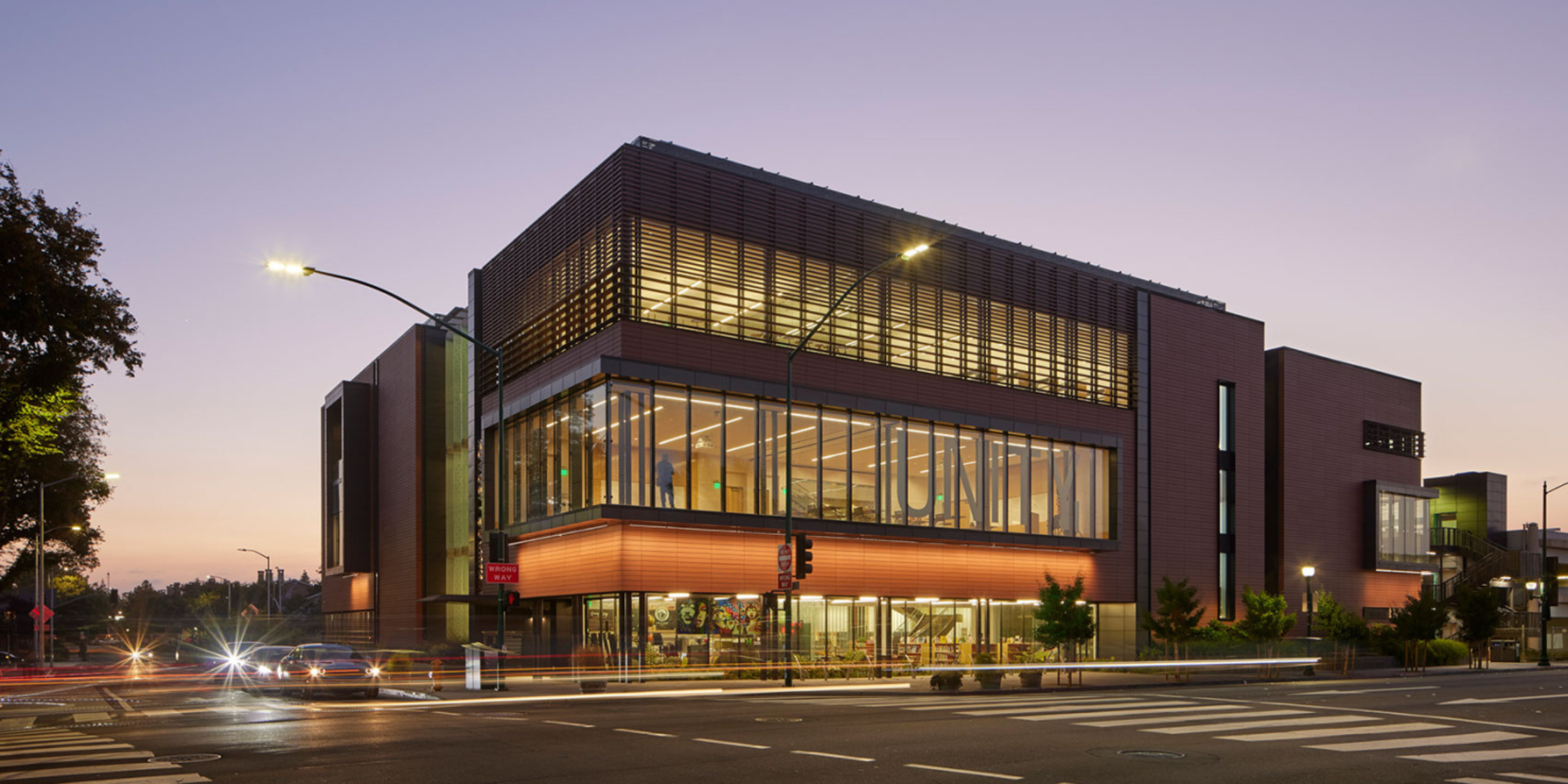
Improving Hayward’s public schools, enriching the education of Hayward’s youth, and expanding the role of career training, higher education, and lifelong learning are major priorities of the Hayward community. While the City of Hayward does not have direct control over school administration or curriculum, it does provide a variety of services and programs related to education and learning through the Library and Community Services Department. The city is also home to several educational assets, including trade schools, Chabot College, and California State University, East Bay. By developing strategic and innovative partnerships between the City, school districts, local colleges, businesses, and community organizations, Hayward has the potential to improve the quality of its public schools, enhance the education and job skills of its residents, and develop into a recognized center of quality education and lifelong learning.
The Education and Lifelong Learning Element establishes goals and policies to improve education and learning opportunities for all Hayward residents. The goals and policies address childcare and early childhood development, school performance and reputation, school facilities and amenities, the education-to-jobs bridge, lifelong learning, and library facilities.
The goals and policies in the Education and Lifelong Learning Element support several other elements of the General Plan. Most notably, the education goals and policies directly and indirectly support the goals and policies of the Economic Development Element, the Community Safety Element, and the Community Health and Quality of Life Element.
Education and Lifelong Learning Goals:
Goal EDL-1: Improve access to quality childcare and early childhood development programs so that more children succeed in school and life.
Childcare and early childhood development are vital to the success of Hayward's families and youth. At its most basic level, childcare makes it possible for parents, especially single-parents,to work and financially support their families.In addition, quality childcare and childhood development programs provideearly experiences that play a crucial role in the future success of children. Through early stimulation, the brain and behavior develop in tandem to produce motor, cognitive, and perceptual skills that contribute to a child’s ability to learn and develop healthy relationships. Extensive research has shown that early childhood development programs (such as preschool)significantly increases a child's chances of graduating from high school and college. In addition, children who attend preschool are less likely to be arrested, convicted of a felony, and incarcerated in prison. Investing in early childhood development can help the City achieve its goals of improving public schools, increasing local employment opportunities, and reducing crime. This goal and its supporting policies seek to provide Hayward families with greater access toquality and affordable childcare and early childhood development programs,includingpre-school, pre-kindergarten, and library and kindergarten-readiness programs.
EDL-1.1: Childcare and Early Childhood Development Centers:
The City shall encourage efforts to expand the overall capacity of local childcare and early childhood development centers in the Hayward community.
EDL-1.2: Library Programs:
The City shall maintain, enhance, and promote early childhood development programs offered through local libraries, such as story time, arts and crafts, and learn-and-play groups.
EDL-1.3: Local Agency Coordination:
The City shall coordinate with local school districts, park districts, childcare providers, and pre-schools to consider opportunities to implement additional childcare and childhood development programs throughout the city, such as pre- and after-school programs and summer camps.
EDL-1.4: Employee Childcare and Childhood Development Facilities:
The City shall consider commercial development applications to provide on-site childcare and early childhood development programs for business employees. The City shall consider surrounding land uses and the safety and health of children when evaluating applications.
EDL-1.5: Pre-school and Pre-Kindergarten:
The City shall promote the benefits and value of early childhood education to encourage parents to enroll their children in pre-school and pre-kindergarten programs.
EDL-1.6: Pre-School/Pre-Kindergarten Alternatives:
The City shall coordinate with park districts, community organizations, childcare centers, pre-schools, school districts, and colleges to develop an affordable alternative to pre-school and pre-kindergarten, such as home-based learning groups and on-line programs that provide parents with resources and exercises to do with their children.
Goal EDL-2: Enhance the performance and reputation of Hayward’spublic schools to improve student education and attract families and businesses to the Hayward community.
Improving Hayward’s schools and enriching the lives of Hayward’s youth is a major priority of the Hayward community. While the City does not have direct control over school administration or curriculum, this goal and its supporting policies strive to improve the performance andreputation of local schools by developing strategic partnerships and volunteer networks that support public schools. The policies in this section are focused on improving the academic test scores of public schools and improving the reputation of schools within Hayward. While test scores alone are not the sole indicator of a successful school, they are an important factor that influences whether or not families and businesses will choose to move to or stay within the Hayward community, and they help improve college acceptance rates for students. Goals 3 and 4 provide additional policies that address other important aspects of successful schools. Goal 3 contains policies related to upgrading and constructing new school facilities, andGoal 4 provides policies related to preparing students for college, vocational schools, and successful careers.
EDL-2.1: Academic Excellence:
The City shall advocate for the pursuit of academic excellence and the use of research-validated best practices in public schools.
EDL-2.2: Professional Development for Teachers:
The City shall support school district efforts to expand research-validated professional development and coaching programs for teachers.
EDL-2.3: Achievement Gap:
The City shall encourage local school districts to establish strategies to assist under-performing students and reduce the achievement gap (the educational performance gap between socio-economic groups). Strategies may include the establishment of specialized programs that provide customized instruction to small groups of students with similar learning profiles and needs.
EDL-2.4: Cultural Diversity:
The City shall encourage school districts to expand learning programs that take advantage of Hayward’s diversity, such as two-way bilingual immersion programs, cultural enrichment assemblies, and cultural arts programs.
EDL-2.5: Library Tutoring Programs:
The City shall maintain and further develop the library after-school tutoring programs by increasing the number of community partnerships, expanding the volunteer support network, and striving to expand library tutoring programs so that they are offered at each public school.
EDL-2.6: College Volunteer Opportunities:
The City shall coordinate with local colleges to expand volunteer and reciprocal learning opportunities for college students at local schools, tutoring centers, home-work clubs, summer camps, and libraries.
EDL-2.7: School Academic Test Scores:
The City shall coordinate with local school districts to evaluate the feasibility of developing supplemental training resources or study groups to help students prepare for school academic tests.
EDL-2.8: Online Resources:
The City shall encourage parents and students to use online educational programs that reinforce classroom learning using a combination of animated lessons, interactive activities and worksheets, and other innovative teaching methods.
EDL-2.9: Promise Neighborhood Initiative:
The City shall coordinate as an active partner in the Hayward Promise Neighborhood initiative and shall encourage the expansion of successful education strategies to other schools in Hayward.
EDL-2.10: Grant Funding:
The City shall coordinate with local school districts, colleges, and community organizations to pursue grant funding for programs designed to improve schools and State standardized test scores.
EDL-2.11: Parent Involvement:
The City shall encourage local schools to maintain and further develop parent-involvement programs to increase parent participation in student education and to enhance school pride.
EDL-2.12: Award Success:
The City of Hayward shall recognize the achievements of schools (including students, school staff, volunteers, and parents) that successfully increase the educational achievement of students and improve State standardized test scores.
EDL-2.13: Business Recognition:
The City shall coordinate with the Hayward Chamber of Commerce to recognize and promote businesses that support local schools through volunteer programs and financial donations.
EDL-2.14: Promoting Public School:
The City shall coordinate with local school districts, alumni networks, real estate professionals, and the business community to promote the positive achievements of local schools and to help change the perception and conversation about the quality of public schools in Hayward.
Goal EDL-3: Provide exceptional school facilities and learning environments that give students, parents, teachers, and administrators a strong sense of school and community pride.
Many Hayward schools have aging facilities that are in need of major renovations and reconstruction to comply with current seismic safety standards and building codes. Aging school facilities also discourage families and businesses from moving to Hayward, make it harder for school districts to recruit quality teachers and administrators, and reduce student enthusiasm and school pride. They can also create distracting environments that make it harder for students to focus and learn. This goal and its supporting policies strive to create exceptional school facilities that inspire students and foster a strong sense of school and community pride.
EDL-3.1: School Facility Upgrades:
The City shall encourage school districts to renovate and/or reconstruct aging school facilities.
EDL-3.2: High Performance Design:
The City shall encourage local school districts to incorporate high performance design practices in school renovation and new construction projects to enhance student learning by creating comfortable and inspiring learning environments with proper lighting, air temperature, humidity, and noise levels.
EDL-3.3: Sustainable Design:
The City shall encourage school districts to incorporate sustainable design practices in the construction and renovation of school facilities to reduce energy and water consumption and related utility expenses.
EDL-3.4: Multi-Story Schools:
The City shall encourage school districts to construct multi-story schools to maximize the efficiency of available acreage for playgrounds, sports fields and courts, school gardens, and other recreational resources.
EDL-3.5: Recreation Facilities:
The City shall encourage school districts to provide high-quality recreation facilities to create school pride, reinforce the importance of physical activity and health, and to provide the community opportunities for joint-use of facilities during after-school hours.
EDL-3.6: Technology:
The City shall support efforts to improve school facilities with cutting-edge technology, such as wireless networks, multimedia equipment, and laboratory space for science and technology programs.
EDL-3.7: Closed Schools:
The City of Hayward shall encourage closed school sites to be temporarily re-used as community centers, parks, and recreational facilities, which would allow the sites to transition back to schools if needed in the future.
EDL-3.8: New School Sites:
The City shall coordinate with local school districts at the earliest possible opportunity to determine the need for new school sites and to identify potential locations.
EDL-3.9: School Site Criteria:
The City shall encourage new schools on sites that are:
- Centrally located within the service area of the school;
- Located near established and/or planned public transit routes;
- Located away from heavy traffic, excessive noise, and incompatible land uses; and
- Accessible to an established and/or planned network of walkways, bicycle paths, or greenways that link the school with surrounding neighborhood.
EDL-3.10: Funding Improvements:
The City shall support the efforts of local school districts to increase funding for school facility renovations and new construction.
EDL-3.11: School Impact Fees:
The City shall coordinate with school districts to ensure that the impacts of new development are identified and mitigated through the payment of school impact fees in accordance with State law.
Goal EDL-4: Improve Hayward’s “education-to-job bridge” through community partnerships that prepare students and residents for the future economy and expand their career choices.
With a distinct knowledge-based economy, the Bay Area relies heavily upon an educated, highly-skilled, and technical workforce. Improving the education and occupational skills of Hayward’s workforce is a major community priority. The quality of Hayward’s workforce can determine whether or not businesses locate in Hayward and can influence if they choose to stay and grow locally. This goal and its supporting policies strive to improve the education and job skills of Hayward’shigh-school students and adult residents so that they are qualified for local and regional jobs. The City of Hayward recognizes that not all residents will pursue a college education, and therefore supports programs that both prepare students for college and that provide trainingand skills that will prepare individuals for a broad spectrum ofvocational trades and professions.
EDL-4.1: Graduation Rates:
The City shall encourage and promote school district and community efforts to increase high school graduation rates.
EDL-4.2: Innovation Learning:
The City shall work with transit service providers and healthcare providers to improve connections to local and regional health care facilities for people who are transit-dependent.
EDL-4.3: College-Preparation and Career Technical Training Tracks:
The City shall encourage local high schools to provide students with both a college-preparation track and a technical training track (a program of study that involves a multiyear sequence of courses that integrates core academic curriculum with technical and occupational skills and experience).
EDL-4.4: Education Partnerships:
The City shall coordinate with local schools, colleges, government agencies, non-profit organizations, businesses, the Chamber of Commerce, and other organizations to expand student exposure to various professions and local businesses through classroom presentations, internships, and on-the-job training.
EDL-4.5: STEM Programs:
The City shall collaborate with community organizations, businesses, schools, and colleges to enhance learning opportunities in science, technology, engineering, and math (STEM).
EDL-4.6: Library Programs:
The City shall maintain and enhance library programs that improve education and employment opportunities for residents, such as adult literacy programs, English-learning programs, and computer and technology programs.
EDL-4.7: Workforce Resources and Training:
The City shall promote career resources programs and occupational skills training services offered by local and regional agencies, such as the Alameda County Workforce Investment Board, East Bay Works, the California Employment Development Department, and the Construction Craft Training Center.
EDL-4.8: Regional Occupation Program (ROP):
The City shall promote the high school and adult occupational training programs offered by the Eden Area ROP.
EDL-4.9: Colleges, Trade Schools and Technical Training Institutes:
The City shall encourage efforts to expand the student capacity of local colleges, trade schools, and technical training institutes to increase educational and occupational training opportunities for Hayward residents.
EDL-4.10: Events, Festivals and Tours:
The City shall coordinate with local schools, colleges, trade school, and businesses to sponsor events, festivals, and tours that encourage high school students and adults to enroll in college or career training programs.
Goal EDL-5: Provide a variety of opportunities for residents to engage in an ongoing pursuit of knowledge and lifelong learning.
Lifelong learning is an ongoing, voluntary, and self-motivated pursuit of knowledge, primarily for personal enjoyment and satisfaction. The term recognizes that learning is not confined to formal education and job training, but takes place throughout life and in a range of situations. The Hayward community has the desire to be a center for lifelong learning. This goal and its supporting policies strive to create a variety of lifelong learning opportunities that extend beyond an individual’s formal education and career training. Policies are designed to increase access to lifelong learning opportunities offered through local colleges, museums, libraries, self-directed learning circles, park districts, senior centers, and community organizations.
EDL-5.1: Continuing Education:
The City shall encourage local colleges, vocational schools, and technical training institutes to maintain and improve continuing education courses and certificate programs, including opportunities for on-line learning.
EDL-5.2: Open University:
The City shall encourage local colleges to offer “open university” courses (courses that can be taken on a space-available-basis, without a formal admission to the college).
EDL-5.3: Learning Outside of the Classroom:
The City shall encourage learning beyond the classrooms by promoting lectures, learning circles self-directed discussion groups, and other educational opportunities at local libraries, historical societies, museums, community centers, senior centers, regional parks, art studios, and science and nature centers.
EDL-5.4: Library Programs:
The City shall maintain and develop library programs and services that contribute to the personal education of adults (of all ages) pursuing lifelong learning opportunities.
EDL-5:5: Digital Library Services:
The City shall expand access to educational resources by incorporating library technology that allows users to access non-print collections through the use of computers, e-readers, tablets, smart phones, and other electronic devices.
EDL-5.6: Park Districts:
The City shall encourage the expansion of learning courses and educational programs offered by the Hayward Area Recreation and Park District HARD) and East Bay District (EBRPD).
Goal EDL-6: Enhance and expand Hayward’s library facilities to meet the evolving educational and life-long learning needs of the community.
Hayward’s libraries are important community assets that provide information, educational resources, and a variety of services to Hayward children, students, and adults. This goal and its supporting policies strive to enhance Hayward’s library facilitiesand adapt to the evolving learning needs of the community. This goal and its supporting policies do not address services and programs offered by the Library and Community Services Department, as previous goals and policies address a broad range of library programs, services, and activities.
EDL-6.1: Standard for Library Space:
The City shall strive to expand library space within the community to meet and maintain a minimum standard of 0.75 square feet of space per 1,000 residents (excluding school and college libraries).
EDL: 6.2: Main Library:
The City shall continue to seek funding for the construction of a new and expanded Main Library in Downtown Hayward.
EDL-6.3: Weekes Branch Library:
The City shall consider various facility renovations and expansions to the Weekes Branch Library to enhance library services and programs based on community needs.
EDL-6.4: Library Facility Maintenance and Renovations:
The City shall consider library facility renovations and expansions based on changing demographics and customer needs.
EDL-6.5: Extending Library Services:
The City shall consider a variety of innovative and creative solutions to extend the geographic reach of library services throughout Hayward neighborhoods, including a network of library kiosks, library book vending machines, digital library services, new branch libraries in underserved areas, and the provision of library programs and services in off-site locations (such as community centers and schools).
EDL-6.6: Design Priniciples:
The City shall consider the following principles when designing new library facilities and library renovation projects:
- Libraries should be flexible and provide spaces that can support a variety of uses, such as personal study, group interaction, creative and innovative collaboration, art exhibits, computer research, presentations and lectures, and community events.
- Facility systems should support a technology-rich environment and wireless networking.
- Interior spaces should be zoned by acoustical and activity levels to allow simultaneous use by all types of people.
- The exterior and the interior of the building should be easy to navigate and designed with a sense of openness.
- Libraries should incorporate sustainable design practices to reduce energy and water consumption and related utility expenses.
- Libraries should have high-quality interior spaces and furniture that attract people and encourage them to stay for long periods of time (similar to coffee shops or book stores).
EDL-6.7: Bond Initiatives:
The City shall support State and local bond initiatives for library construction and renovation efforts.
EDL-6.8: Library Impact Fee:
The City shall consider the establishment of a library impact fee for new residential construction.
EDL-6.9: Library Park:
The City shall maintain Library Park (the home of the current Downtown Library) as a public space if and when the library is relocated to a new facility. Future improvements to Library Park should strive to preserve mature trees, promote the history and heritage of Hayward, and create attractive spaces for outdoor festivals, musical performances, cultural events, and farmer’s markets.



